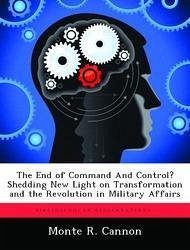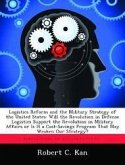For more than a decade the United States military has been frenetically searching for the key to success in the Information Age. The American Revolution in Military Affairs (RMA) has been at the center of efforts to transform the armed forces for the twenty-first century. Revolution, however, means different things to different people. Attempts to understand the motivation for and implications of the RMA are thus frustrated by the lack of a suitable framework for analyzing change in military organizations. Could it be that, having neither a reliable definition for revolution nor a suitable framework in which to analyze its implications, the United States military may be proceeding on a misunderstood and ill-founded course? This thesis proposes that Thomas Kuhn's notion of a paradigm shift is a useful framework within which to analyze revolutionary change. Proceeding from the general pattern that Kuhn identified in scientific revolutions, examination of similar patterns in both technological and political revolutions indicates that a paradigm shift can occur in a variety of domains. A case study of the Blitzkrieg revolution in interwar Germany suggests that one such domain is the realm of warfare. Analysis suggests that in times of crisis due to failure to secure victory in battle, armed forces can construct a new battle tradition. Application of the paradigm shift framework to the American RMA shows that for much of history, military forces have relied on a single paradigm to "manage" the conduct of war-- Command and Control (C2). This tradition relies on the coup d'oeil of military genius and Newtonian reductionism to exercise precise control over armed forces in order to direct the conduct of battle. Analysis of the RMA further suggests that the United States may have misinterpreted the impact of the Information Age.








